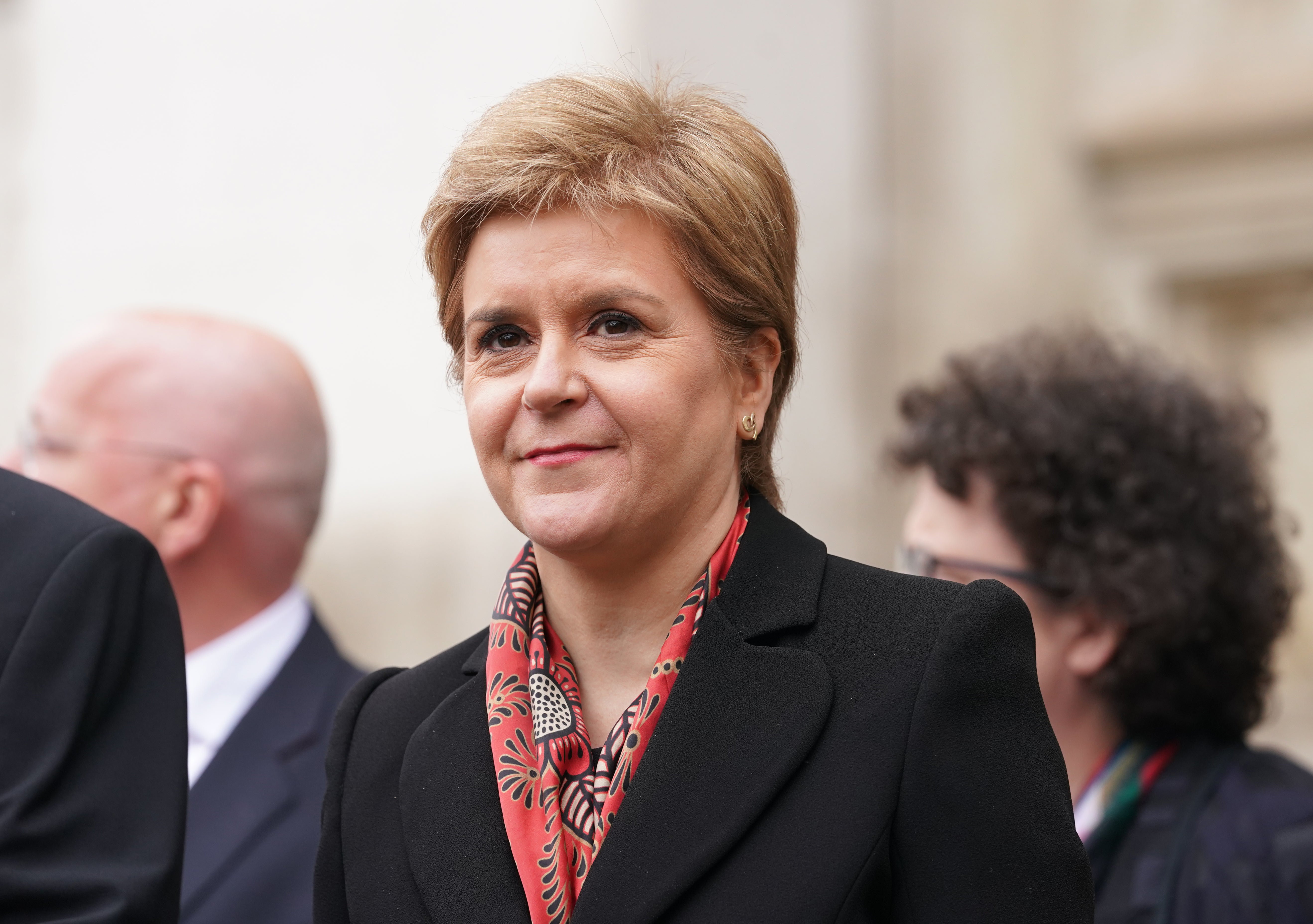Sturgeon defends putting indyref in local election manifesto
The First Minister launched the SNP manifesto in Greenock on Friday with key pledges such as tackling the cost-of-living and independence.

Your support helps us to tell the story
From reproductive rights to climate change to Big Tech, The Independent is on the ground when the story is developing. Whether it's investigating the financials of Elon Musk's pro-Trump PAC or producing our latest documentary, 'The A Word', which shines a light on the American women fighting for reproductive rights, we know how important it is to parse out the facts from the messaging.
At such a critical moment in US history, we need reporters on the ground. Your donation allows us to keep sending journalists to speak to both sides of the story.
The Independent is trusted by Americans across the entire political spectrum. And unlike many other quality news outlets, we choose not to lock Americans out of our reporting and analysis with paywalls. We believe quality journalism should be available to everyone, paid for by those who can afford it.
Your support makes all the difference.Nicola Sturgeon has defended her party’s decision to campaign for Scottish independence during a local election campaign.
The First Minister launched the SNP party manifesto at the Beacon Arts Centre in Greenock on Friday ahead of the May 5 council elections.
Ms Sturgeon, leader of the SNP, said the cost-of-living crisis and local services are at the forefront of her party’s manifesto.
However, a key pledge also states local councillors will back the Scottish Government’s plans to hold a second independence referendum during the first half of this parliamentary term.
The public could be asked to decide on the constitution issue by the end of 2023, Ms Sturgeon said.
When asked if it was appropriate for local councillors to campaign for independence during an election where local issues such as cleansing services and schools should be the priority, Ms Sturgeon said: “The manifesto is very clear that the priority for SNP councillors will be the cost-of-living crisis and local services.
“But I don’t think it is going to surprise anybody that SNP councillors will support the Scottish Government’s proposals for a referendum in the first half of this parliament.
“And of course, that is a mandate that was won at the election last year and one that therefore democratically I have not just a determination to but arguably a duty to proceed with because that’s what I put to people in the election last year.”
Pamela Nash, Scotland in Union chief executive, said: “This confirms that every SNP councillor elected will spend valuable time trying to further Nicola Sturgeon’s ambition to divide us once again, instead of improving local public services.
“They will be campaigning for an unwanted referendum as early as next year rather than standing up for local communities in the face of SNP cuts.
“We need more local champions who focus on what really matters to people, not cheerleaders for Nicola Sturgeon.”
The SNP manifesto also pledges to support those on the lowest incomes through the cost-of-living crisis, tackle fuel poverty and make “significant progress” towards the target of 110,000 more affordable homes by 2032, with 70% of them to be for social rent.
I know and recognise that there are concerns on the part of local councils about this, and we will work closely as the legislation is introduced
Elected SNP representatives will also work with the Scottish Government to build a National Care Service that improves the way care and support is delivered for people who use community health and social care, the manifesto states.
But the plans for a National Care Service have caused concern with the Convention of Scottish Local Authorities (Cosla) over fears it could diminish the power of local health boards.
Ms Sturgeon said she recognised the concerns of local councils, but said the plans will not “erode” local services.
She said: “The challenge (in the National Care Service) is to make sure we don’t erode local delivery of services but that we do establish a service that addresses what many people have concerns about which is a postcode lottery of care standards that are not always as high as they should be.
“And for those who work in the social care sector, a lack of consistency around terms and conditions and a lack of proper value in terms of the pay.
“That’s about addressing those issues.
“I know and recognise that there are concerns on the part of local councils about this, and we will work closely as the legislation is introduced and taken forward to try to address those concerns as much as we can.”